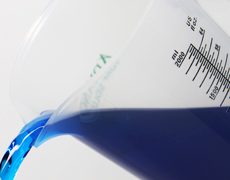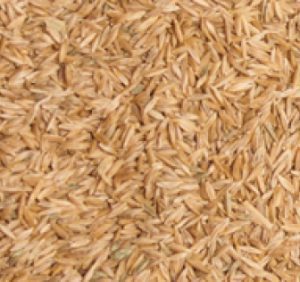For over 30 years, West Virginia was spared the damage armyworms could produce. Then, just like in many other states last summer, they struck. Lawns were devastated overnight, leaving lawn care companies working seven days a week to try and save as many properties as they could. Some yards made it; some didn’t.
During this unusual time, Advanced Turf Solutions customer, West Virginia Green, was out in the armyworm trenches, trying to keep the insect from overwhelming their customers’ lawns.

“At first, we thought the fine fescue was just going dormant because of the August heat,” Ron Duvall, Owner of West Virginia Green, said. “West Virginia hadn’t had a problem with armyworms in a few decades.”
But the calls of ‘hey, my yard’s dead’ kept coming, and lawns that had a few patches of brown one day turned into entirely brown lawns in a night.
“I was devastated when I pulled up to one customer’s lawn,” Eric Holt, Lead Technician at West Virginia Green, said. “We had put so much work into that lawn, and it was just brown, completely brown.”
When soap flushes started revealing the culprit outright, Duvall and his team knew armyworms were invading West Virginia, and his company was in for a fight.
“We were out in the field seven days a week when it all started,” Duvall said. “We sprayed all day long to keep the armyworms from creating even more damage.”
But before the fight eased, things took a turn for the worst.
“During our armyworm application marathon,” Holt said, “the pump that filled our vans went down.”
He continued, “Right after I was able to pull together a temporary solution, I came down with COVID-19. My unfortunate departure left my team short-handed, so I helped them as much as I could from home until I could assist in the field again. When the guys needed help filling tanks, I watched the shop cameras on my cell phone from home, and we got that done.”
Even with the setback, Duvall, Holt, and the rest of the team at West Virginia Green beat the armyworms back.
From late August to the end of September,” Duvall said, “we sprayed close to 1000 yards morning to night, about 60 percent of our customers.”
“And we got through it.” He continued. “We rid the lawns of armyworms, and the lawns recovered.”
While hard work played a huge role in combating the armyworms, Duvall believes the strong relationships between his customers and his company saved the day.
“We could not have saved all these lawns without our solid customer relationships,” Duvall said. “The relationships created over the years had fostered trust, which allowed us to get the job done without much pushback.”
He added, “With how quickly the armyworms showed up and destroyed a whole yard, having customers trust us enough to listen to our advice and then being allowed to jump in there and do what we need to do made a significant impact on our success.”
The trust Duvall’s customers had for him and his company shined through as they allowed him and his team to treat the armyworms and aerate and seed for the second time in some situations. Aeration and seeding is a service 90 percent of Duvall’s customers get, so some customers paid for double aeration and seeding that year.
Besides solid relationships and hard work, Duvall also credits communication for saving his customers’ lawns.
“By communicating the situation as much as possible,” Duvall said, “We reached our customers’ yards early enough to save them before they were devastated. The foliage was just gone on some lawns because of the first week of mass migration, but most were saved.”

To keep communication flowing, Duvall first uploaded a video about armyworms on the company website in hopes customers could get a better understanding of what was occurring and what to look for. He also sent out an email asking customers to contact his company if they saw any of the tell-tale signs of armyworms, and his technicians called their customers and talked to them in the field to get the word out.
When it comes to control methods, Duvall and his team relied on bifenthrin, Foliar-Pak Colonise Bio LTO, aeration, and seeding when treating the armyworms. He used bifenthrin to control the armyworms and Colonise Bio LTO to help the lawns recover. Duvall turned to aeration and seeding when the damage to the turfgrass plants was just too much for them to overcome.
The biggest lesson Duvall and his team learned from last year is to be proactive. Duvall and Holt sat down before the season began and came up with a plan to combat armyworms this year if they invaded.
“We’re on top of it and won’t go through that again,” Duvall said. “We’re going to make sure we have a good supply of bifenthrin and add it in the early summer application with our round three.”
About West Virginia Green
Ron Duvall founded West Virginia Green in 2006 with a pickup truck and a pump. West Virginia Green has since expanded from one employee to seven. The company offers aeration, seeding, topdressing, lawn installation, erosion control, grub control, silt seeding, and exterior pest control in north-central West Virginia.













